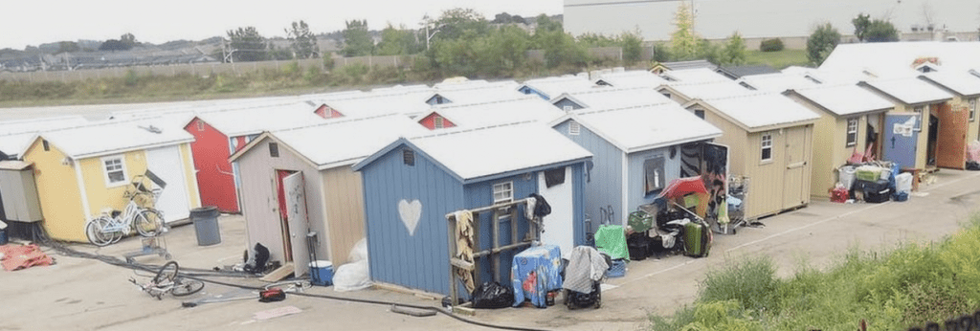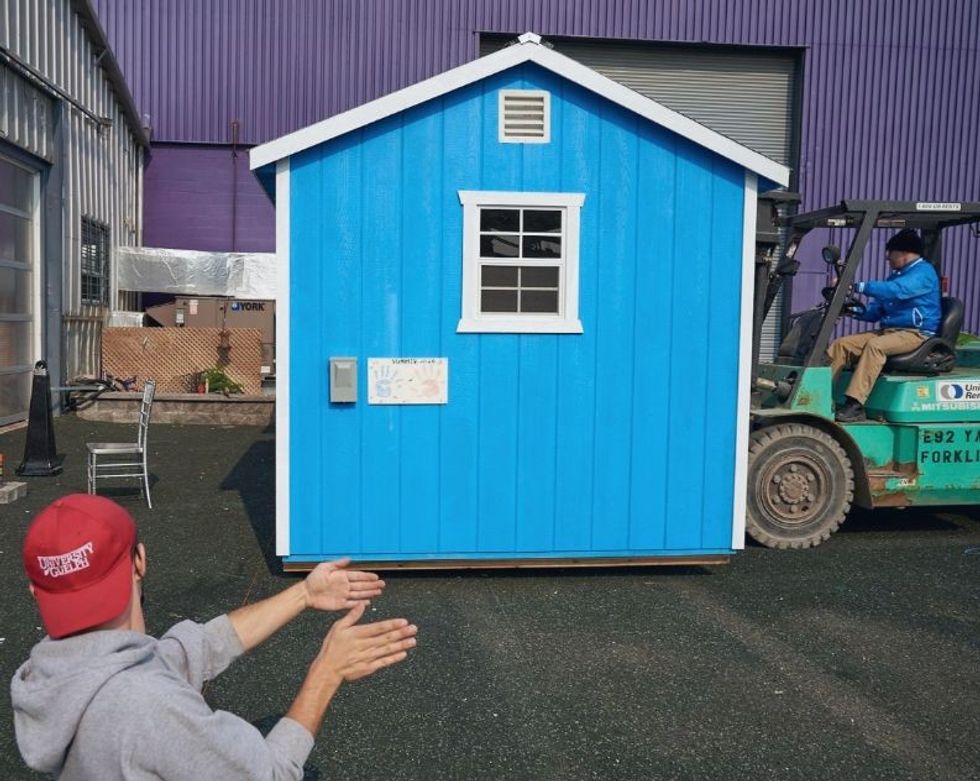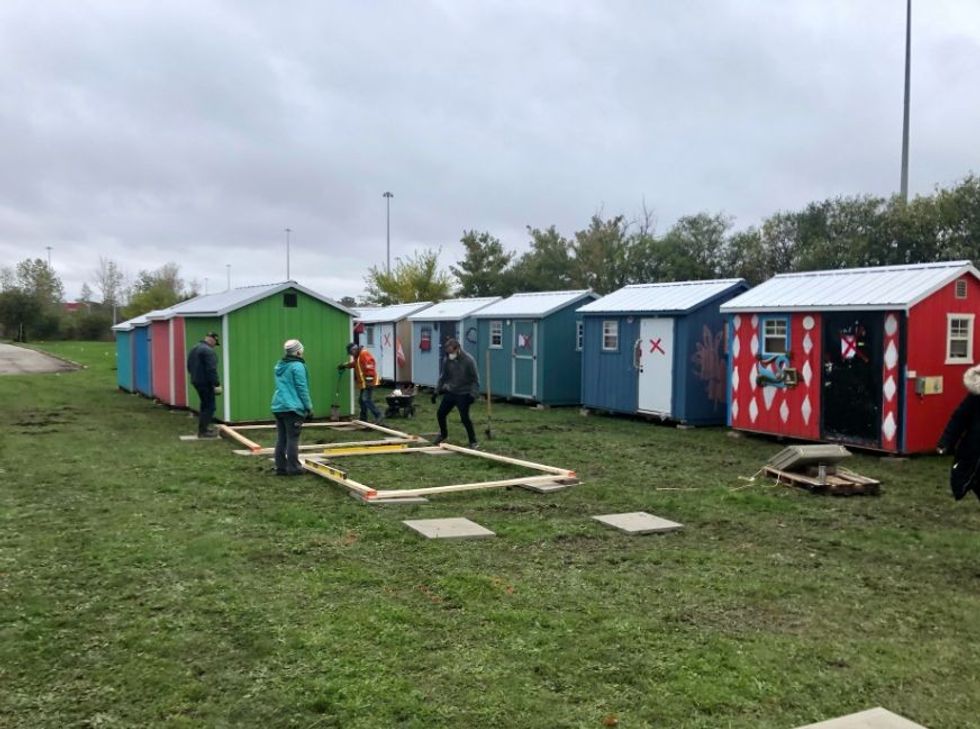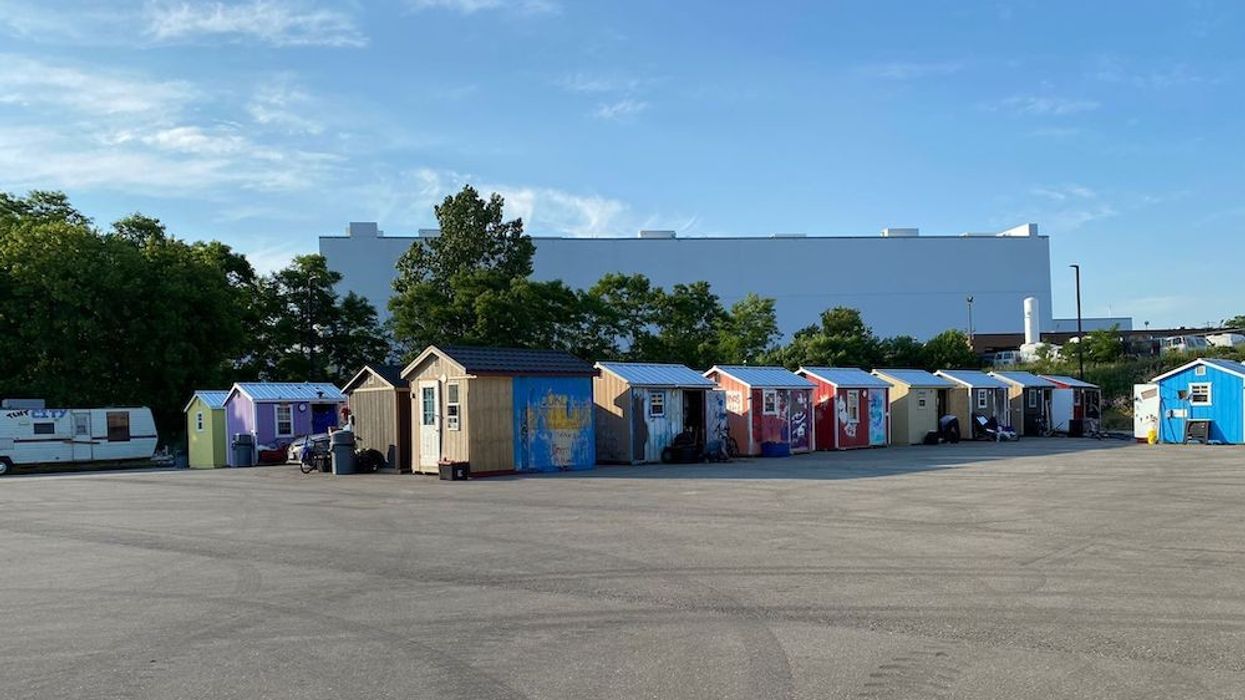With a polar vortex sweeping over Ontario, conversations surrounding homelessness have sparked fresh urgency.
In Toronto, outrage over encampment removals and concerns over warming centres have flooded the news and social media. In London, rising water levels are actively threatening encampments and those who rely on them. And although an Ontario Superior Court justice ruled in January against removing a homeless encampment from a municipally-owned property in Kitchener, it doesn’t change the reality that tents are not much more than a stopgap solution, and no match for the weather extremes Ontario now faces year-round.
It’s clear there are a lot of kinks to iron out when it comes to protecting vulnerable populations from weather extremes. Inventive approaches are needed and the solutions will hardly be one-size-fits-all.
Tony Stortz knows this first-hand. As someone who has worked as an outreach coordinator for St. Mary's Church in Kitchener and a site supervisor for A Better Tent City in the Waterloo region, he has a deep appreciation for what Ontario’s homeless residents are up against. Shelters are largely overrun, and even when shelter living is an option, not everyone has a sense of trust in the model.

And for Stortz, finding a better solution is personal.
“I had someone I was close with growing up and I went down one path and he went down another and ended up unsheltered in my hometown,” he says. “It all sort of boiled over for me one day in a Home Depot lumber aisle. I was looking around and there was plywood, doors in aisle 11, insulation in aisle 14. I thought, everything we need is right here, the land is there, why do we have people sleeping in bank vestibules and on doorways?”
Taking a cue from A Better Tent City -- something he refers to as a “pioneering model” for a successful tiny community for homeless in Canada -- Stortz founded BetterStreet in December 2021 with the hopes of launching the model across the country. Through BetterStreet, Stortz is working with non-profit organizations and governments across southern Ontario municipalities with the intention of creating communities of tiny homes for those facing homelessness, drug addiction, and issues with mental health.

“I will say -- and this is important -- they're not my projects. Each project will be independent. I'm just helping them do it,” Stortz explains. His role is to act as a consultant to get these communities off the ground and stabilized, because there are a lot of moving pieces. He helps to build local leadership teams, tackle fundraising, and ensure the correct permitting is obtained. “People want to get this kind of thing going. People with connections and roots in the city, they want to do it but they don't know how. They hire me because I know how to get it done.”
But beyond just getting these communities built, a key part of Stortz’s vision is that these communities can be safe, productive, and somewhat self-governing in the long run.
“It should be a system, a community of tiny homes where people live independently with some staff support, but they're basically responsible for themselves,” he says. Meanwhile, the homes themselves will be equipped with insulation, electric heat sources, fireproofing, and locking doors. “They get to live in a community, we don't have keys to their front door, there's no timeline on when they’re supposed to be out of there, and they're able to use substances if that's what they choose to do. The main priority is safety, not sobriety.”

Although Stortz is in talks with municipalities in Hamilton, Peterborough, Belleville, and Toronto, one major challenge he’s been confronted with is convincing them to waiver from the status quo. Because his model is not without risk.
“I'd say there’s definitely been interest, but also a little bit of hesitation,” he says. “Municipalities, often, they've worked with the traditional shelter system for a long time. It's like that old saying: if all you have is a hammer, every problem looks like a nail. If the model you're used to working with is a top-down shelter system style model, then that's all you can imagine.”
To date, the most significant progress has been made in Hamilton -- volunteers, support services, donations, and insurance have been secured, and the Hamilton Alliance for Tiny Shelters is currently working with City Council to secure land. Belleville and Peterborough will likely be the next in line.
“A Better Tent City in Kitchener is the model originally, so the big question is is it a fluke, a unicorn, a one-off thing that's only going to work in one place? Or is it a replicable model that can change people's lives? I obviously believe it's the latter," says Stortz.

Of course, Toronto is a different beast entirely. The City is increasingly grappling with affordability challenges, its homeless population is on the rise, and its shelter system is chronically overwhelmed. Toronto has resorted to temporary measures, including extending leases at temporary shelter sites, which currently make up 30% of the City’s shelter system.
The need for alternative solutions in Toronto is clear and dire, but at the moment, Stortz says he is at the beginning stages of bringing BetterStreet to Toronto: consulting with local leadership and building a board of directors.
In the meantime, he's busy hashing out this idea as it progresses in other regions, taking cues from not only the communities involved in the projects underway, but those who will be living in the homes. "They're the experts," he adds.
“I'd like a tiny home community in every city that has a homelessness problem. If there are people sleeping on a bench outside, I think they should have a tiny home available as an option to them. If they choose to sleep outside, well then that is their prerogative and I respect that decision, but it should be a true, honest choice.”
But ultimately, Stortz hopes to eventually put himself out of business.
“My goal is, in 10 years, to have no clients and nobody to work with. I'm in the business of homelessness, and if you're in this industry, and you're not trying to end it, I don't know what you're doing,” he says. “I am hopeful.”





















